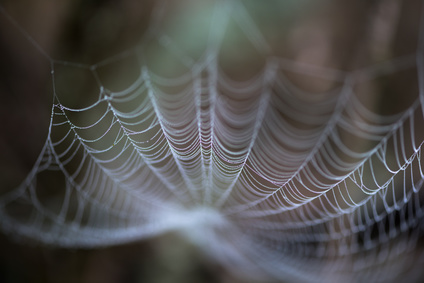As the weather warms, workplace safety is top priority as many jobs gear up for outdoor activity—perhaps spring cleaning of a work site or storage building. Care should be taken as warm weather is also a time for spiders to be active.
In the South and Midwest, brown recluse and black widow spiders are the most dangerous. While neither of these spiders are aggressive, they will bite when threatened, the female black widow will especially bite to protect her eggs. The bite can be serious and in rare instances, deadly.
Brown recluse spiders are sometimes called fiddle backs due to the dark brown, violin-shaped pattern extending from the head down the back, with the neck of the violin pointing to the rear. These non-hairy spiders are tan to dark brown in color with darker legs. Black widows in the Southern United States are shiny black, and approximately half-inch in length. They have a round abdomen with the distinctive red hourglass on the underside.
Both spiders are nocturnal, thus active at night. They prefer dark corners or crevices, and warm, dry areas. They are commonly found in attics, basements, garages, and storage areas. Brown recluse spiders often live in cardboard boxes.
Avoid being bitten:
Workplace safety is always top priority. Make these a habit to avoid potential hazard:
- Clean up clutter in the outdoor job site, garages, and storage sheds.
- Avoid stacking crates and other containers against the buildings.
- Wear gloves when working near potential spider habitats. Avoid reaching into dark spaces.
- Avoid leaving gloves or other clothing on the ground. If you do, shake them out before putting them on.
Symptoms of a brown recluse and black widow spider bite:
Brown recluse bites have a unique pattern of discoloration around the bite. It may be deep purple or blue, surrounded by a whitish ring and a larger red area. Dark blisters or ulcers may develop around the bite. Symptoms usually develop two to eight hours after a bite and may include the following:
- Severe pain at the bite after about four hours
- Nausea and/or vomiting
- Intense itching at the bite
- Fever and chills
- Muscle pain
Black widow spider venom affects the victim’s nervous system. Once bitten, acute pain at the bite is the first symptom. Other symptoms usually start within 20 minutes to one hour after the bite and may include:
- Muscle cramps
- Abdominal pain
- Nausea and vomiting
- Fainting and dizziness
- Chest pain and respiratory difficulties
- Elevated blood pressure and heart rate
If you are bitten:
- Report the incident to your workplace safety manager.
- Identify the spider, if possible. This will help the doctor in diagnosis.
- For black widow spider bites, go to the nearest hospital emergency department.
- Brown recluse spider bites should be seen by a physician the same day.
- Wash the area thoroughly with cool water and mild soap. Do not scrub.
- Cold packs may be applied to the bite area. Do not use heat.
- If possible, elevate the bite area above the heart level.
- Over-the-counter pain relievers may be taken.
Enjoy the sunshine and warmer weather, but be on the lookout for potential hazards. Spiders are lurking in the shadows and want to avoid you as much as you should avoid them.


